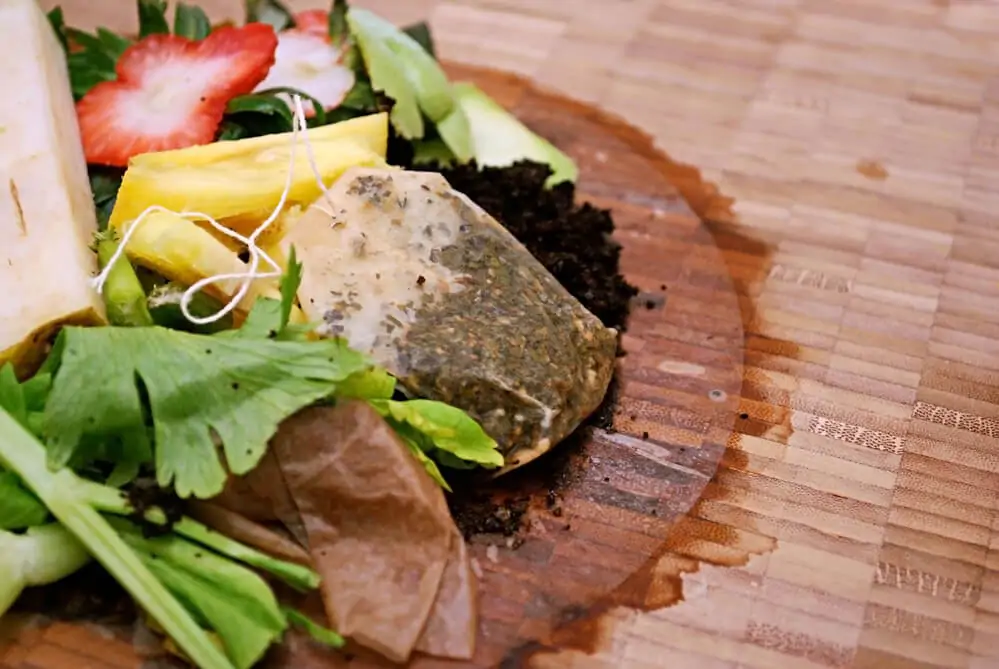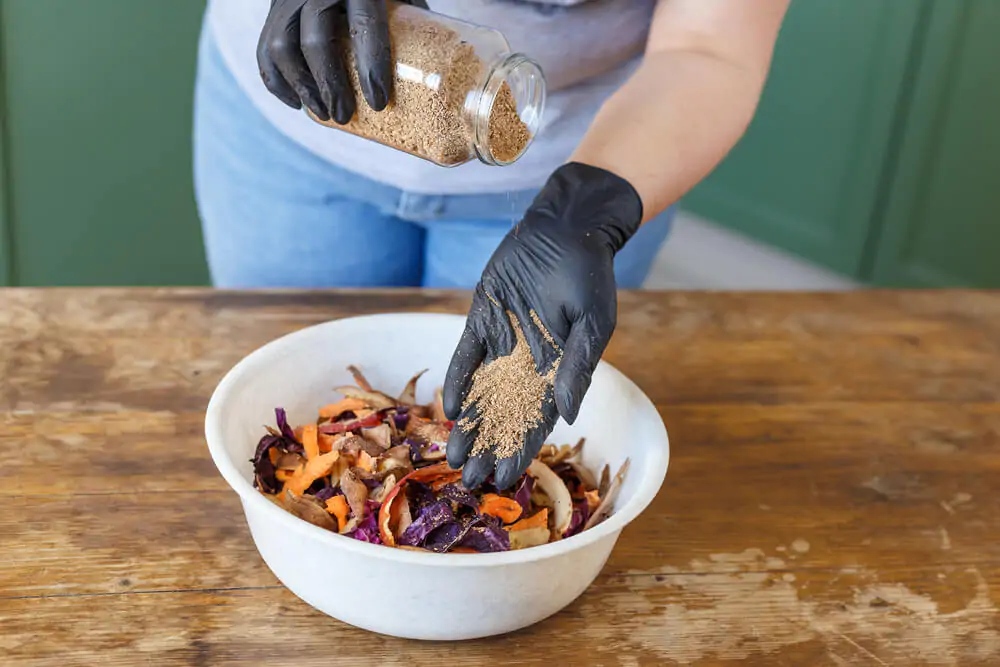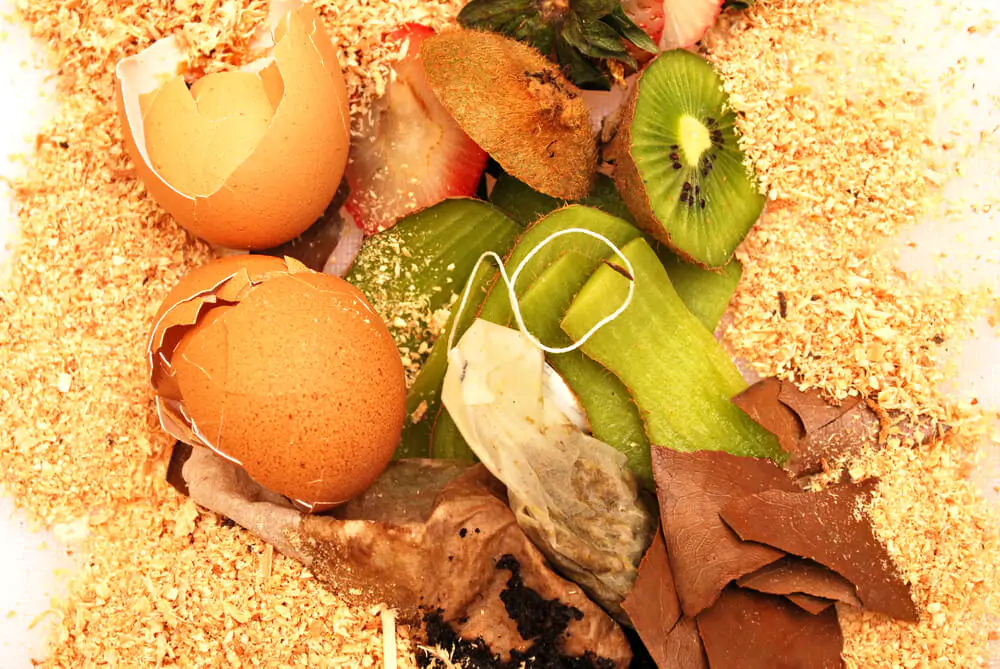Are you wondering what is a compost tea and what is the best way to use it? Read more to find out.

Gardening is hard work. Taking care of your precious plants and the soil surface is a year-round task. Since compost was invented, it has become terrific stuff, but the world has seen an even better product that adds more nutrition to the plants and establishes a stable structure for the root zone.
They call it compost tea.
Unlike the name suggests, compost tea has nothing to do with tea. Instead, compost tea is made by steeping compost in water.
Types Of Compost Tea
Aerobic Compost Tea
Aerobic compost tea is brewed with the presence of oxygen. You can differentiate between aerobic and anaerobic compost teas by looking at the bubbles in the tea. Aerobic soil bacteria are harbored in fluffy soil, which is the key to a healthy plant.
You can improve oxygen circulation in the water by using an aquarium pump in a bucket before adding the compost.
Anaerobic Compost Tea
On the other hand, we have anaerobic compost tea made without oxygen. You take everything from compost and manure to plant material, let it sit in a bucket, and ferment. The decomposition occurs using microorganisms that do not require oxygen to survive, and it will perform better when soaked.
It is easier to make just by commonly found materials around the house, such as fresh cutting grass and kitchen scraps, as long as they are wet and rich in nitrogen. For this reason, the decomposition will have a yeasty, poopy-vomit smell. Plus, it also takes longer for the anaerobic compost to decompose compared to aerobic.
Some gardeners advise adding a certain level of aerobic tea into the mixture before using it on the plant. You can also spread and rake it into the soil surface before using it.
Manure Tea
Manure tea is made of livestock manure steeped in a bag and submerged in water. Unlike aerobic and anaerobic compost tea, manure tea should not be brewed with raw or fresh manure if used on edible crops, which can result in extreme sickness or death of the food plants due to the development of E.Coli.
You can use manure tea to water the plants and the lawns periodically. The only thing you need to know is to ensure the tea is properly diluted before use. Otherwise, the full strength in the extraction will burn the roots and foliage.
Bokashi Tea

On the lesser-known side, bokashi tea is also referred to as leachate, which is tapped from the bokashi kitchen composter during the fermentation and composting process. Bokashi tea is high in microbes and nutrients but should be applied to the plants in a properly diluted recipe.
You might also be interested in our explainer on why is coffee good for plants.
Benefits Of Compost Tea
Compost tea acts as a supplement, providing more microbes and soluble nutrients to the soil and feeding the foliar. On the plants, compost tea boosts the beneficial organisms to combat disease-causing organisms and prevent them from infecting the injured spots on the leaves or making their way into the food resources.
In the soil, compost tea forms a biological barrier around roots, keeping all the nutrients inside the roots, bracing the soil structure, holding water down, and improving the nutrient cycle.
Ultimately, compost tea will also improve the nutritional quality and flavor of vegetables – all can be done when you know how to use it correctly and at the right time.
If you liked this post, you might find our guide on how to use coffee grounds as fertilizer helpful.
What Is The Best Time To Spray Compost Tea?

There is no right or wrong to this answer. It all boils down to which type of plants you’re growing and their health status.
You can use compost tea every 14-30 days during the growing season. I recommend opting for the early hours of the day when the plant stoma is open to receive the full benefits from the tea. Once the sun is up, your plants will have enough time to soak up all the nutrients, and the leaves start drying before the fungal diseases creep in and develop due to excess moisture.
Early morning is also the perfect moment when the moisture level stays intact in the soil, allowing it to fully absorb all the tea’s nutrients. If you’re taking care of an ornamental plant, wait until late winter and early spring to drench the soil and spray the opening leaf buds with the tea.
Compost tea can also be used to treat fungal or insect issues. You can do this by applying it at every watering period.
The Right Way To Apply Compost Tea
Start with the right mixture first. Keep a close eye on your recipe and ensure you have a great balance of the compost and water depending on which type of compost you’re giving to the plant.
On average, you can apply the non-aerated tea after letting it ferment for five to eight days. Meanwhile, aerated compost teas will be ready for use only after two days.
Once you start watering the plant, suspend the mixture in a burlap sack over a container and let the tea drip into the bucket. Then you can spray the tea onto the leaves and the injured body or work around the plant’s root area. Depending on which plant you’re taking care of, the compost tea can be used at full strength or diluted at a ratio of 10:1.
